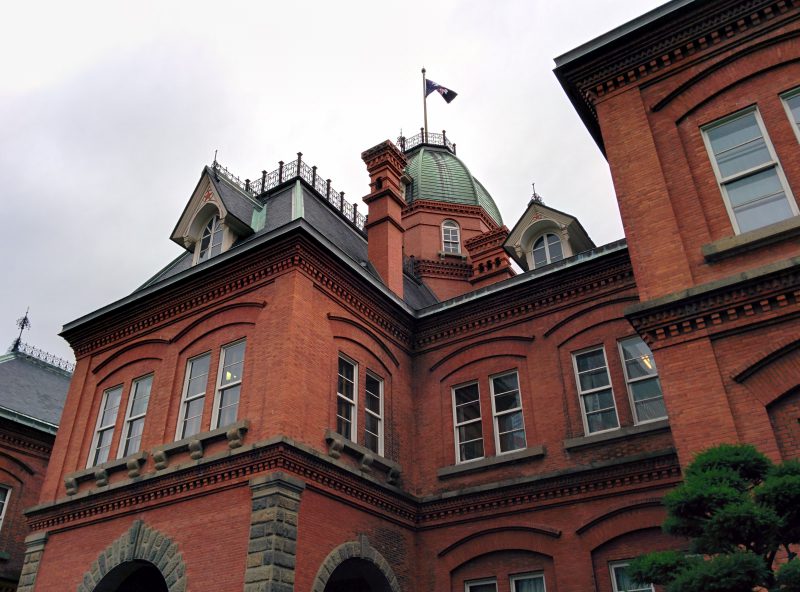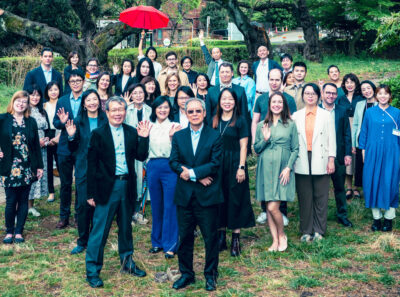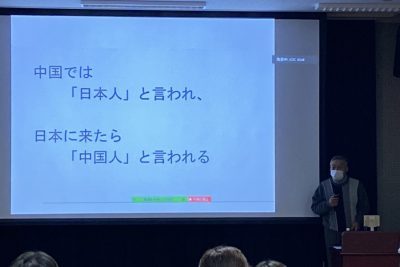Archival Research and Covid-19: Advice for Doctoral Researchers

During my dissertation research conducted during the 2016-2017 academic year, I was based at Kyushu University in Fukuoka, some 1,500 kilometres away from my primary research site. My research focuses on the 19th century Japanese colonization of Hokkaido and its impact on the Indigenous Ainu people, and it was critical that I spend as much time as possible in Hokkaido. However, I was on a shoestring budget and was only able to make a few brief trips into Sapporo.
During these trips, I prioritized three of the largest Sapporo-based historical archives: the Archives of Hokkaido, Hokkaido University’s Northern Studies Collection, and Hokkaido Public Library. At these archives, I furiously snapped cell phone photos of any documents which I did not have time to read on-site. Over the course of my three trips, I collected close to nine gigabytes of archival material, representing over 3,000 files and many hundreds of individual documents. I brought these back with me to Kyushu where I meticulously sorted and skimmed through them, isolating useful documents while disregarding the rest. This process was, needless to say, time consuming and less than ideal. However, despite the large number of documents I had amassed, on account of finding sometimes significant gaps in the resources I had available, I supplemented these with thousands of pages more which I collected remotely from digital archives maintained by institutions across Japan.
Given the sudden necessity for historical researchers focusing on Japan to utilize online resources, I’ve briefly sketched out my experiences using online archives below, with special attention given to the advantages and disadvantages of conducting historical research online. While it’s a hit-and-miss process, the scope of which will depend one’s own research project, it’s my hope that my experience will prove useful to doctoral researchers and other junior scholars who have been thrown off by covid-19.
Japanese universities, as well as national, prefectural, and municipal-level public archives are making incredible strides in digitizing their historical collections. However, even as thousands upon thousands of new resources go online every year, this process has been uneven. Some institutions have produced high resolution and sometimes even annotated PDFs. Others, however, have put out only sometimes illegible low-resolution black and white images. Overall, this process of digitization has been an immense gift to researchers, and it is now entirely possible to conduct large-scale research into Japanese history without setting foot into an archive or library. And, because these collections are dispersed institutionally, finding resources is often simply a matter of “following your nose” and seeing what is available at different places.
In my case, the above-mentioned Sapporo-based archives have not yet digitized the bulk of their massive collections, which is what necessitated my repeated trips to Sapporo. However, in part because of these limitations, I have happened upon rich digitized collections of resources related to Hokkaido housed at archives across Japan in places as diverse as Waseda University, the Yamaguchi Prefectural Archives, and Saga Prefectural Library, to name but a few. These are all places which I would not otherwise have thought to visit in person in search for resources related to Hokkaido.
And, in my case, above all else, the National Diet Library has been an absolutely fantastic, irreplaceable resource. It houses thousands upon thousands of fully indexed historical texts which can be downloaded as high-resolution JPEG files. One significant drawback for those overseas, however, to access newer texts (including both works still protected by copyright as well as newly scanned out of copyright texts), the National Diet Library often requires you either visit in person or use special workstations at Japanese universities/public libraries. However, this may soon change. In 2017, the Agency of Cultural Affairs petitioned Japanese studies librarians working overseas to voice their opinions on a proposal amendment to Japanese copyright law which would open up many of these materials to those studying overseas. However, in my experience researching 19th century Japan, the vast majority of texts I have sought to access have been fully available online, and those that aren’t may be freely available elsewhere.
These may be found on third party websites such as Google Books or Archive.org, where many other Japanese institutions have opted to upload their digitized collections. Using these platforms, researchers can search entire collections or individual texts for keywords in an instant. While hit and miss when dealing with sometimes handwritten texts in non-standard forms of Japanese, by and large, this feature has been immensely helpful for finding new sources. Many overseas institutions have likewise digitized their Japanese language materials and have uploaded them to these platforms. For example, while conducting research in Japan, I was surprised to access a Japanese language text related to Nabeshima Naomasa (鍋島直正), the first head of the Kaitakushi (the Japanese Colonial Department), only to find that it was digitized by my alma mater, the University of Toronto.
Relying on these digital resources has changed the direction of my own research in challenging and fruitful ways. I had initially planned on focusing on “official” materials related to the colonization of Hokkaido, such as those to be found in public archives. However, online archives such as the National Diet Library contain a huge variety of texts written not by bureaucrats or colonial planners but by journalists, pundits, armchair imperialists, propagandists, critics, and other sometimes colourful figures. Or, in other words, I found a variety of texts commenting on the colonization of Hokkaido in ways which are often surprisingly counterintuitive. These finds have had a significant impact on my understanding of the history of Hokkaido and have led me to analyze the wider discursive field of Hokkaido’s colonization, rather than just the “nuts and bolts” of its colonial development.
While this experience has been overwhelmingly positive, it comes with an important caveat. There is simply no replacing the experience of visiting archives in person. Part of the process of conducting research in these places is to gauge the scale and scope of each collection rather than extracting individual documents. Particular kinds of documents tend to be grouped together in archives for a reason, and better understanding these collections, especially for those of us engaged in the study of colonialism, can sometimes help reveal occluded histories. And, moreover, it takes time to learn how to best utilize these collections, what their individual strengths and weaknesses are, and how to “zero in” on particular archives which are most useful for one’s own research.
This is difficult, if not impossible, without visiting these institutions in person, even if individual resources may all be available online. And, often, in my own experience in Hokkaido, a pamphlet I was looking for, for example, didn’t turn out to be useful, but it was bound together with a thick stack of documents which I’d have otherwise never thought to have searched for were. It is an entirely different mode of research which, even if entire collections are digitized, still has merit for researchers.
So, this is not intended as a death knell for traditional archival research. Nor is it to say that it is impossible to conduct high quality, historically rigorous research entirely online. However, given our current situation, it will be critical for doctoral researchers -- especially those who don’t have the financial luxury of waiting out the pandemic -- to find creative ways of overcoming such serious constraints.
I am curious to hear about the experiences of researchers conducting archival research during the pandemic, including researchers based in Japan. If you would like to share your experiences, or have questions about my own, please feel free to contact me at michael.roellinghoff [at sign] mail.u-tokyo.ac.jp.








